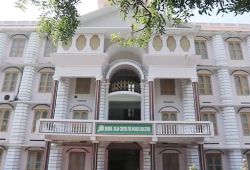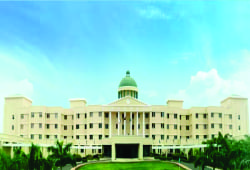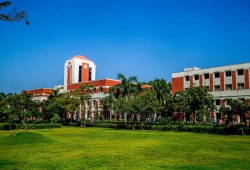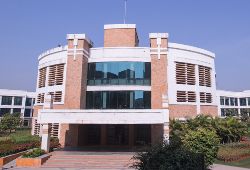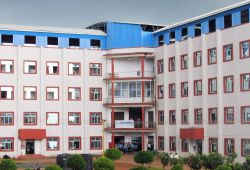Kerala is a beautiful place known for its palm-lined beaches and backwaters, a network of canals. There is Aircraft Maintenance Engineering in Kerala who became popular due to its scope. The aviation sector is touching sky so Aerospace Engineering became well-known course. There are many best Aerospace Engineering Institute in Kerala.

Best Aerospace Engineering Colleges in Kerala
Finding the best aerospace engineering colleges in Kerala requires careful consideration of a number of important factors that could have a big impact on your education and future employment opportunities. These universities are well known for their outstanding academic offerings, which include well-designed curricula that thoroughly cover the foundational ideas of aerospace engineering. Their knowledgeable and experienced faculty members, who provide aspiring aerospace engineers with invaluable guidance, are what really make them stand out.
Additionally, these universities offer state-of-the-art facilities, such as state-of-the-art research centers and laboratories, guaranteeing that students have access to the tools they need to succeed academically. With strong industry ties, a wealth of internship opportunities, and a successful placement record, these colleges set students up for successful careers in the aerospace industry. Their persevering commitment to encouraging creativity and research guarantees that graduates are equipped to significantly advance the field.
Aerospace Engineering Colleges in Kerala Fees
It's crucial to comprehend the related costs when thinking about pursuing an Aerospace Engineering degree in Kerala. The college you choose, whether it's a public or private institution, and the particular program you choose are some of the variables that can affect the cost of education. Let's examine the typical cost range for Kerala colleges of aerospace engineering.
Understanding the Costs
As a specialized field, aerospace engineering necessitates cutting-edge facilities, knowledgeable faculty, and intense training. As a result, the cost of the course may differ. In Kerala, the average annual cost of a bachelor's degree in aerospace engineering is between INR 1,50,000 and INR 4,00,000. These numbers are estimates that may change depending on a number of variables:
Factors Influencing Fees
- Institute's Reputation: Because of the high caliber of education they provide, well-known and established institutions frequently charge higher tuition.
- Government vs. Private Colleges: Generally speaking, government colleges charge less than private ones. However, it can be very difficult to get into a government college.
- Course Duration: Another element influencing the total cost is the program's duration. Fees for longer programs are typically higher.
- Additional Costs: Students should budget for additional costs like textbooks, study aids, lab fees, living expenses, and hostel fees in addition to tuition. Your overall budget may be greatly impacted by these extra expenses.
Scholarships and Financial Aid
Scholarships and financial aid programs are available to worthy students at a number of Kerala aerospace engineering colleges. By reducing the financial burden, these scholarships can increase access to high-quality education. Merit-based scholarships may also be available to students who have demonstrated exceptional academic achievement.
Hidden Costs
Students should be mindful of additional expenses beyond tuition, such as those related to labs, projects, and hotel stays. To guarantee your financial readiness, you must plan for these extra costs.
Is It Worth the Investment?
Particularly in the aerospace and defense sectors, aerospace engineering is a highly sought-after profession with fantastic employment prospects. A rewarding and well-paying career can result from investing in your education. The investment is probably going to pay off in the long run if you are passionate about aerospace innovation and technology.
Eligibility Criteria for Aerospace Engineering Colleges in Kerala
You must fulfill certain eligibility requirements in order to be admitted to Kerala's aerospace engineering colleges. The following are requirements for potential students studying aerospace engineering:
Admission Eligibility:
- Academic Qualifications: Having a solid background in mathematics, physics, and chemistry and passing the 10+2 exam.
- Entrance Examinations: Passing state-level engineering entrance exams or entrance exams like AME CET, JEE Main and JEE Advanced.
- Minimum Aggregate Marks: Completing the qualifying test with a minimum overall score, usually 50% or above.
- Additional Entrance Exams: Candidates may be required to pass additional entrance exams customised to their college.
- Age and Nationality: As part of their qualifying requirements, some universities may have particular age restrictions or nationality requirements.
Campus Facilities in Kerala for Aerospace Engineering Colleges
For practical training and research, aerospace engineering depends on specialized infrastructure and facilities. Kerala's aerospace engineering colleges provide cutting-edge facilities like:
- Aircraft Maintenance Hangars: Hangars on campus offer hands-on training in aircraft repair and maintenance.
- Rich Library Resources: A vast collection of books, research papers, and internet resources are available for students to use when conducting research in well-stocked libraries.
- Aviation Workshops: Workshops provide hands-on experience in aircraft engineering by providing the tools and equipment needed to construct and modify aircraft components.
- Computer Labs: With software for engineering projects and aerodynamic simulations, computer labs allow students to use technology in their education.
- Interactive Classrooms: Through the use of audio-visual aids, interactive learning is made possible in modern classrooms, improving the educational process.
- Research Centers: Committed to state-of-the-art aerospace research, offering students chances to work on creative projects.
- Hostel Facilities: On-campus housing promotes a feeling of community and brotherhood while ensuring students' safety and convenience.
- Sports and Recreation: Sports fields, gyms, and cultural clubs provide a well-rounded lifestyle that supports students' mental and physical health.
Admission Process at Aerospace Engineering Colleges in Kerala
The following steps are commonly included in the Aerospace Engineering admissions process:
- Meet the Eligibility Criteria: Candidates must fulfill specific eligibility requirements, which can differ from one university to another, in order to pursue a degree in aerospace engineering. Nonetheless, completing 10+2 (or its equivalent) with physics, chemistry, and mathematics as required subjects is frequently one of the general requirements. Scores from engineering entrance exams, such as AME CET, JEE Main, or other pertinent national or state-level exams may also be taken into account by certain institutions.
- Entrance Examination: Candidates must take a pertinent entrance exam at many universities and colleges that offer programs in aerospace engineering. The purpose of these tests is to evaluate the candidates' scientific and engineering knowledge and skills. Usually, the results of these tests play a significant role in the admissions process.
- Application and Documentation: Applicants must complete an application that the organization they want to join provides. They must submit the application and a number of supporting documents, such as:
- Educational certificates and transcripts, such as 10+2 marksheets.
- Scorecard of the entrance examination (if applicable).
- Proof of identity, often in the form of a government-issued ID.
- Passport-sized photographs.
- Domicile certificate (if required by the institution).
- Category certificate (if applicable, for reserved category candidates).
- Personal Statement and Letters of Recommendation: Some institutions may require candidates to submit a personal statement or essay outlining their motivation, goals, and interest in Aerospace Engineering. Additionally, they may need to provide letters of recommendation from teachers or professionals who can vouch for their academic abilities and character.
- Counselling: Candidates may be invited for a counseling session or entrance interview, depending on the institution. The faculty or admission committee may assess the applicant's fit for the program and respond to any queries they may have during these exchanges.
- Payment of Fees: A candidate must pay the necessary fees to confirm their admission to the Aerospace Engineering program after receiving an offer of admission. Tuition, registration, and other associated fees are usually included in these fees.
Aerospace Engineering Colleges Syllabus in Kerala
Aerospace engineering programs in Kerala offer a comprehensive curriculum that covers various subjects throughout the four-year duration of the program. Here's an overview of the typical course syllabus:
First Year Subjects
Semester 1
- Calculus
- Physics - I
- Chemistry
- Basic Electrical Engineering
- Communication Skills
- Environmental Science and Engineering
- Physics Lab
- Basic Engineering Lab
Semester 2
- Vector Calculus and Ordinary Differential Equations
- Physics - II
- Material Science and Metallurgy
- Basic Electronic Engineering
- Engineering Graphics
- Computer Programming and Application
- Basic Electrical and Electronics Engineering Lab
- Chemistry Lab
Second Year Subjects
Semester 3
- Linear Algebra, Complex Analysis, and Fourier Series
- Engineering Thermodynamics
- Mechanics of Solids
- Fluid Mechanics
- Materials Processing Techniques
- Introduction to Economics
- Introduction to Machine Elements and Drawing
- Strength of Materials Lab
Semester 4
- Integral Transforms, PDE, and Calculus of Variations
- Aerodynamics
- Heat Transfer
- Applied Dynamics and Vibration
- Machining and Precision Manufacturing
- Introduction to Social Science and Ethics
- Metrology and Computer-Aided Inspection
- Thermal and Fluid Lab
Third Year Subjects
Semester 5
- Probability, Statistics, and Numerical Methods
- Compressible Flow
- Atmospheric Flight Mechanics
- Spaceflight Mechanics
- Theory of Elasticity
- Automatic Control
- Aerodynamics Lab
- Manufacturing Processes Lab
Semester 6
- Air-Breathing Propulsion
- Aerospace Structures
- Optimization Techniques in Engineering
- Principles of Management Systems
- Elective I
- Elective II
- Aerospace Structures Lab
- Modeling and Analysis Lab
Fourth Year Subjects
Semester 7
- Rocket Propulsion
- Aerospace Vehicle Design
- Environmental Science and Engineering
- Elective III
- Elective IV
- Flight Mechanics and Propulsion Lab
- Instrumentation and Control Systems Lab I
- Summer Internship and Training
Semester 8
- Comprehensive Viva-Voce
- Project Work
Specializations at Aerospace Engineering Colleges in Kerala
With the variety of specializations offered by Kerala's aerospace engineering programs, students can customize their education to focus on particular facets of the aerospace sector. Among the important specializations that students can choose from are:
- Aircraft Design and Manufacturing: Discusses aerodynamics, structural design, materials, and manufacturing processes in relation to the development of aircraft. Students become proficient in creating safe and effective aircraft designs.
- Aerospace Propulsion: Focuses on propulsion systems, rockets, and aircraft engines. Students gain knowledge of engine design, flight mechanics, and propulsion principles.
- Avionics and Control Systems: Focuses on the electronic systems found in aircrafts, such as flight control, navigation, and communication. This area of expertise explores the technology that maintains the efficiency and safety of aircrafts.
- Aircraft Maintenance and Repair: Focuses on maintaining, inspecting, and repairing aircraft to guarantee their safety and airworthiness.
- Space Technology and Exploration: Discusses satellite technology, space mission planning, and spacecraft design. Projects involving satellites, space missions, and interplanetary exploration may be undertaken by students.
- Aeronautical Research and Development: Focuses on cutting-edge aeronautics research, involving students in projects that challenge the limits of aerospace innovation and technology.
- Unmanned Aerial Vehicles (UAVs) and Drones: Focuses on the development, use, and operation of unmanned aerial vehicles for data collection, delivery, and surveillance.
- Aerospace Management: Covering subjects like airline management, aviation marketing, and aviation operations, and aimed at students who are interested in the business side of the aviation sector.
Course Duration at Aerospace Engineering Colleges in Kerala
The foundation for a career in aerospace engineering is laid by the bachelor's degree program that most aerospace engineering programs in Kerala start with. Typically, this undergraduate program lasts four years. The basic concepts of aeronautics and astronautics, such as aerodynamics, aerospace structures, propulsion systems, and flight mechanics, are taught to students during this period. These four years are jam-packed with coursework, hands-on training, and projects that give students the skills and knowledge they need to succeed in this fast-paced industry.
For those interested in pursuing higher education or specialization, master's and Ph.D. programs may vary in duration, typically spanning one to two years for a master's degree and several years for a Ph.D., depending on the specific college and level of study.
Top Recruiters for Aerospace Engineering Graduates in Kerala
Graduates of Kerala's aerospace engineering program can choose from a variety of positions with leading employers in the industry. Among the well-known recruiters are:
- Indian Space Research Organization (ISRO): Provides employment opportunities in space exploration projects, rocket propulsion, and satellite development.
- Defence Research and Development Organization (DRDO): Involves aerospace engineers in defense technology projects, such as research into military aircraft, avionics systems, and missile development.
- Hindustan Aeronautics Limited (HAL): A large aerospace and defense firm that hires aerospace engineers for jobs in the production of aircraft and helicopter.
- Bharat Heavy Electricals Limited (BHEL): Employs aerospace engineers to work on power generation equipment that uses gas turbines.
- National Aeronautics Laboratory (NAL): Focuses on aerospace research; aerodynamics, wind tunnel testing, and aircraft design are all aided by aerospace engineers.
- Air Kerala: To ensure flight safety, the national carrier hires aerospace engineers for aircraft engineering and maintenance.
- Private Aerospace Companies: Numerous career options in aerospace technology and manufacturing are offered by organizations such as Tata Advanced Systems, L&T, and Mahindra Aerospace.
- Aviation Companies: Aerospace engineers are employed by airlines like IndiGo, SpiceJet, and Vistara for positions involving aircraft maintenance and safety.
- Research and Development Centers: Graduates in aerospace engineering can work on innovative projects at universities, research facilities, and private companies.
- Consulting and Engineering Firms: Aerospace divisions of consulting powerhouses like Wipro, TCS, and Infosys provide engineering solutions to the aviation and aerospace sector.


